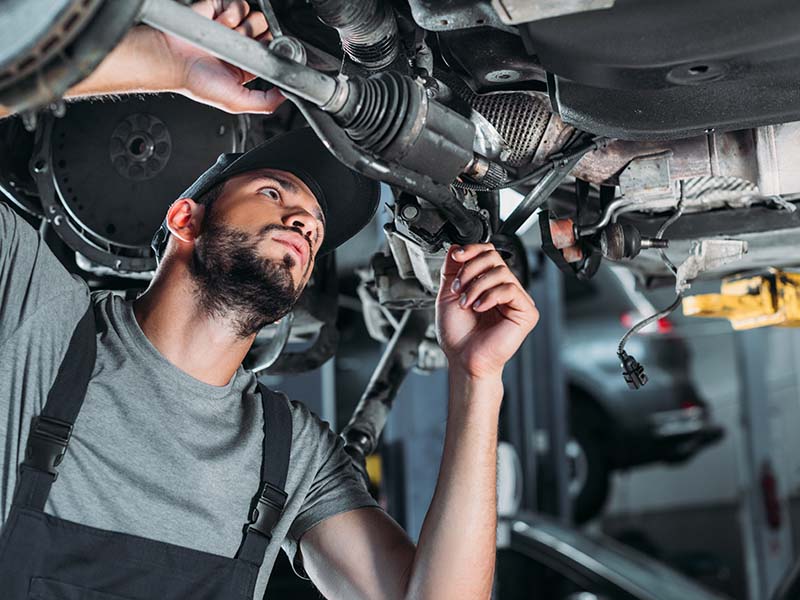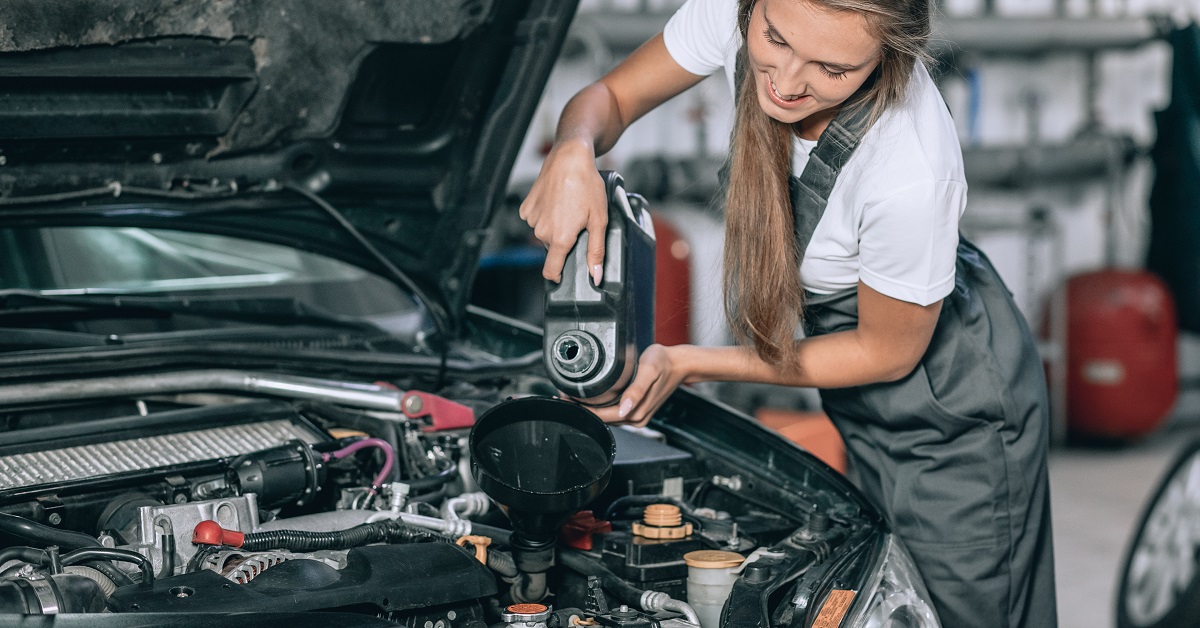All Categories
Featured
Automotive repair work insurance is an essential factor to consider for many car proprietors who wish to safeguard themselves versus unanticipated repair work costs. Comprehending the details of this insurance and exactly how it works can help you make an educated choice regarding whether it's ideal for you.
![]()
What Is Automotive Repair Work Insurance Policy?
Automotive fixing insurance policy, additionally referred to as mechanical failure insurance coverage (MBI), is a kind of coverage that helps pay for non-accident-related car fixings. This insurance policy typically covers significant mechanical failures, making it unique from basic auto insurance, which focuses on obligation, crash, and detailed coverage.
What Does It Cover?
The coverage given by automotive repair insurance policy typically consists of:
Engine Components: Such as the gas pump, camshaft, and shutoffs.
Transmission Systems: Including clutches, torque converters, and gearboxes.
![]()
Electrical Solutions: Addressing repair services for sensors, batteries, and alternators.
Cooling Solutions: Such as radiators, water pumps, and cooling followers.
Air Conditioning and Heating: Treatment compressors, condensers, and associated parts.
Omitted things commonly consist of routine upkeep, normal wear and tear (like tires and brakes), and damages triggered by forget or mishaps.
Who Should Consider Automotive Fixing Insurance?
Automotive repair service insurance is not a requirement for each chauffeur, yet it can be advantageous for:
Proprietors of Older Autos: Older autos with ended guarantees are a lot more most likely to encounter considerable repairs.
High-end Automobile Drivers: High-end designs commonly include costly repair service requires that can stress your spending plan.
Frequent Chauffeurs: High mileage enhances the threat of mechanical failing, making insurance a wise selection.
![]()
Advantages of Automotive Fixing Insurance Policy
Cost Financial savings: Assists reduce the financial concern of expensive repairs.
Satisfaction: Provides confidence that you're prepared for unpredicted issues.
Adjustable Strategies: Many insurance providers offer policies customized to specific needs and budgets.
Ease: Some plans consist of roadside help and towing solutions.
What to Look for in a Plan
Prior to acquiring automotive fixing insurance coverage, evaluate these variables:
Coverage Purviews: Make sure the policy covers major systems and components that are likely to require repairs.
Exemptions: Comprehend what's not covered to stay clear of shocks.
Claim Process: Inspect whether the insurance provider has a quick and straightforward claims procedure.
Approved Repair Work Shops: Validate if you're limited to specific solution centers.
Deductibles: Know just how much you'll require to pay out-of-pocket prior to the insurance policy begins.
Is It Worth the Price?
The value of vehicle fixing insurance policy depends on your automobile's age, reliability, and your financial situation. For more recent vehicles, extended service warranties may provide adequate insurance coverage, making extra insurance policy unneeded. For older or high-mileage vehicles, fixing insurance can conserve you considerable money in the lengthy run.
Conclusion
Automotive repair service insurance coverage provides a safety and security web for lorry owners, specifically those concerned about unforeseen repair expenses. By extensively investigating policies and understanding your vehicle's certain demands, you can determine if this protection lines up with your financial objectives and driving behaviors. For maximum protection, pair repair work insurance policy with normal upkeep to guarantee your cars and truck remains in top problem.

What Is Automotive Repair Work Insurance Policy?
Automotive fixing insurance policy, additionally referred to as mechanical failure insurance coverage (MBI), is a kind of coverage that helps pay for non-accident-related car fixings. This insurance policy typically covers significant mechanical failures, making it unique from basic auto insurance, which focuses on obligation, crash, and detailed coverage.
What Does It Cover?
The coverage given by automotive repair insurance policy typically consists of:
Engine Components: Such as the gas pump, camshaft, and shutoffs.
Transmission Systems: Including clutches, torque converters, and gearboxes.

Electrical Solutions: Addressing repair services for sensors, batteries, and alternators.
Cooling Solutions: Such as radiators, water pumps, and cooling followers.
Air Conditioning and Heating: Treatment compressors, condensers, and associated parts.
Omitted things commonly consist of routine upkeep, normal wear and tear (like tires and brakes), and damages triggered by forget or mishaps.
Who Should Consider Automotive Fixing Insurance?
Automotive repair service insurance is not a requirement for each chauffeur, yet it can be advantageous for:
Proprietors of Older Autos: Older autos with ended guarantees are a lot more most likely to encounter considerable repairs.
High-end Automobile Drivers: High-end designs commonly include costly repair service requires that can stress your spending plan.
Frequent Chauffeurs: High mileage enhances the threat of mechanical failing, making insurance a wise selection.

Advantages of Automotive Fixing Insurance Policy
Cost Financial savings: Assists reduce the financial concern of expensive repairs.
Satisfaction: Provides confidence that you're prepared for unpredicted issues.
Adjustable Strategies: Many insurance providers offer policies customized to specific needs and budgets.
Ease: Some plans consist of roadside help and towing solutions.
What to Look for in a Plan
Prior to acquiring automotive fixing insurance coverage, evaluate these variables:
Coverage Purviews: Make sure the policy covers major systems and components that are likely to require repairs.
Exemptions: Comprehend what's not covered to stay clear of shocks.
Claim Process: Inspect whether the insurance provider has a quick and straightforward claims procedure.
Approved Repair Work Shops: Validate if you're limited to specific solution centers.
Deductibles: Know just how much you'll require to pay out-of-pocket prior to the insurance policy begins.
Is It Worth the Price?
The value of vehicle fixing insurance policy depends on your automobile's age, reliability, and your financial situation. For more recent vehicles, extended service warranties may provide adequate insurance coverage, making extra insurance policy unneeded. For older or high-mileage vehicles, fixing insurance can conserve you considerable money in the lengthy run.
Conclusion
Automotive repair service insurance coverage provides a safety and security web for lorry owners, specifically those concerned about unforeseen repair expenses. By extensively investigating policies and understanding your vehicle's certain demands, you can determine if this protection lines up with your financial objectives and driving behaviors. For maximum protection, pair repair work insurance policy with normal upkeep to guarantee your cars and truck remains in top problem.
Latest Posts
Check Out the Best Auto Repair Coupons in Montclare, Chicago
Published May 24, 25
1 min read
Secure Your Financial Investment with Specialist Seamless Gutter Setup
Published May 20, 25
1 min read
How Chicago Drivers Trust Montclare Auto Repair for Trusted Service and Great Savings
Published May 20, 25
1 min read
More
Latest Posts
Check Out the Best Auto Repair Coupons in Montclare, Chicago
Published May 24, 25
1 min read
Secure Your Financial Investment with Specialist Seamless Gutter Setup
Published May 20, 25
1 min read
How Chicago Drivers Trust Montclare Auto Repair for Trusted Service and Great Savings
Published May 20, 25
1 min read